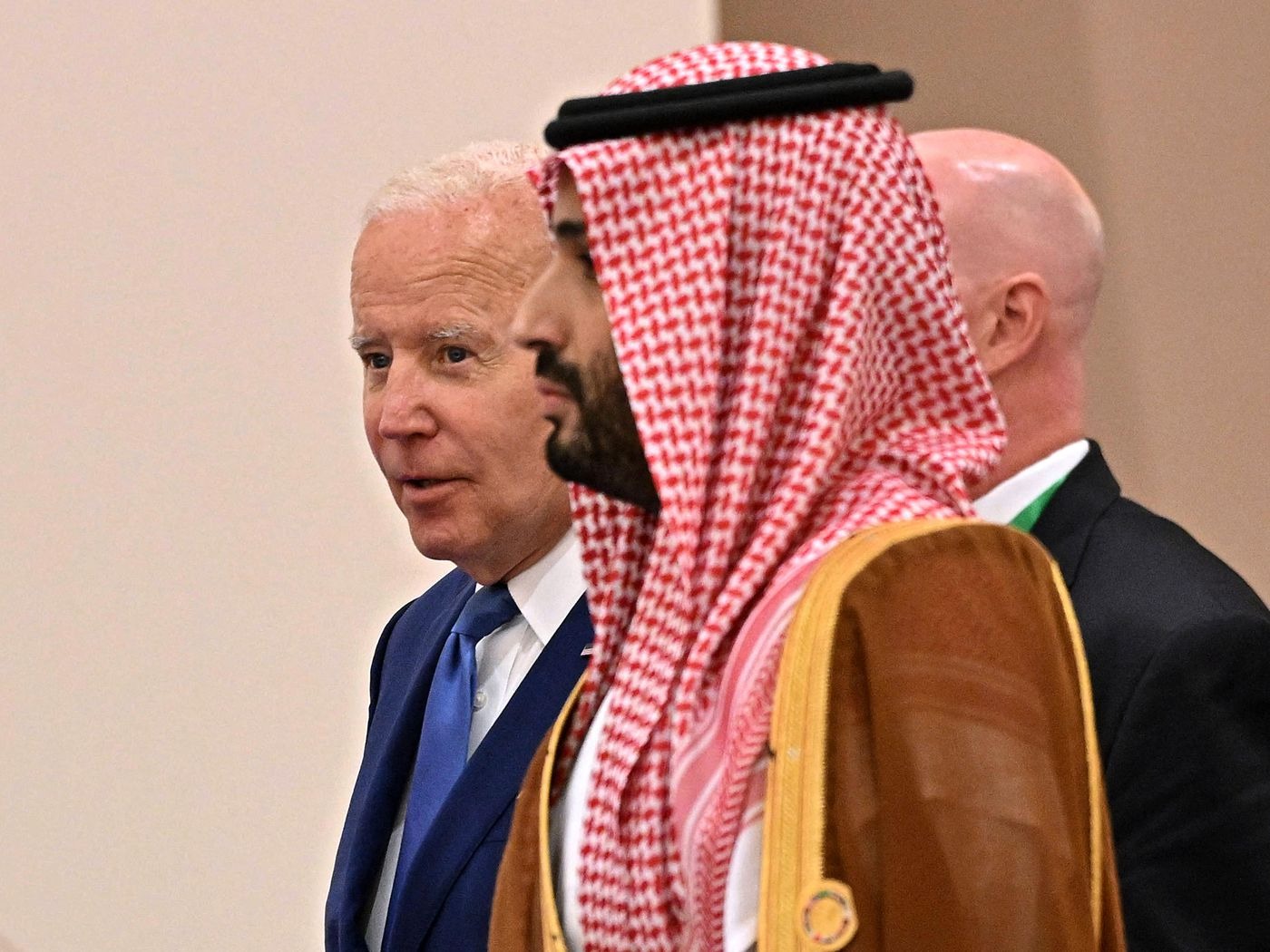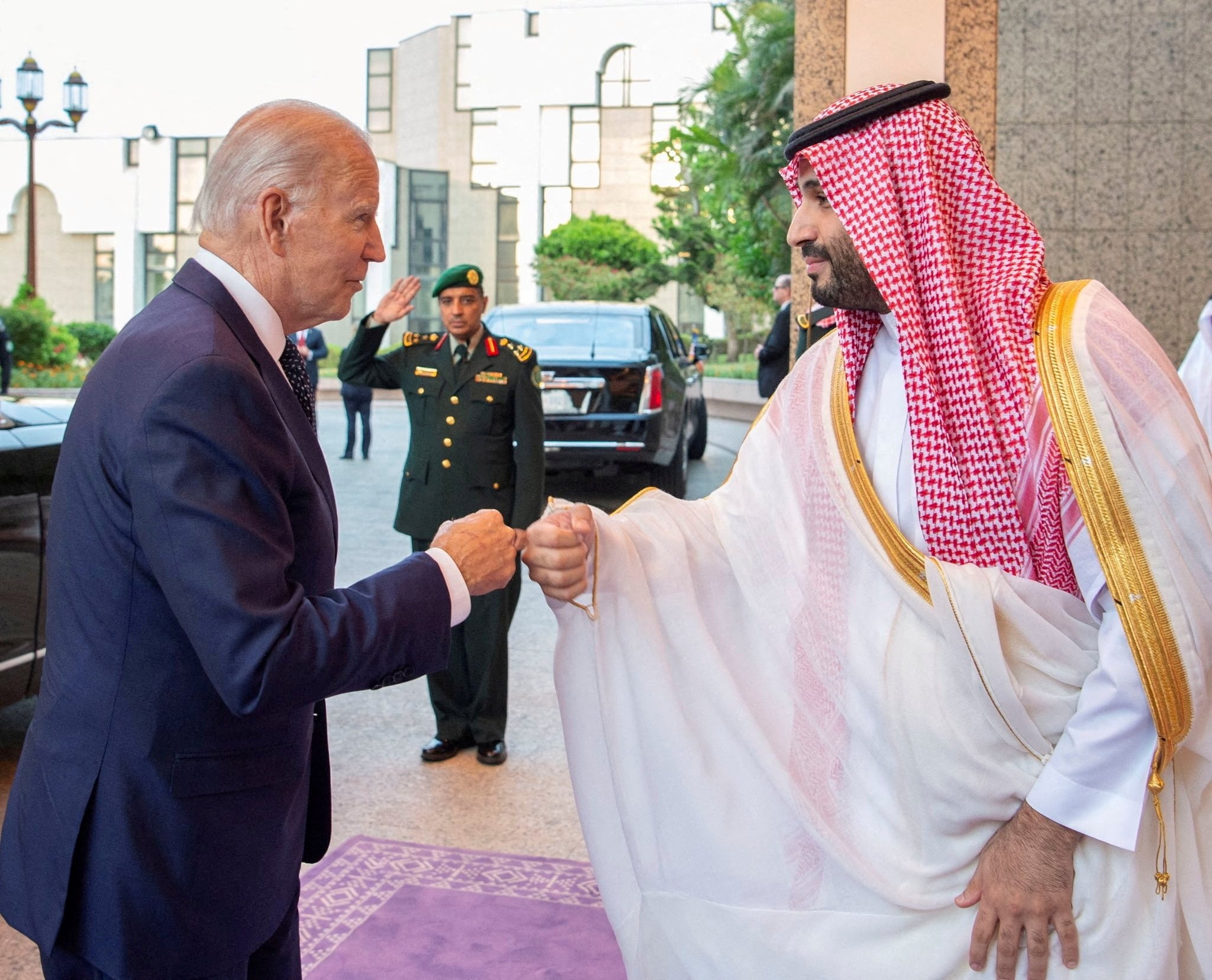Saudi Arabia and the United States are currently ironing out the details of a groundbreaking agreement aimed at bolstering bilateral trade and defense. However, US officials have indicated that the deal hinges on Saudi Arabia and Israel establishing diplomatic relations.
This proposed defense treaty seeks to solidify the longstanding security alliance between Saudi Arabia and the US, especially as they face common adversaries like Iran, Russia, and China in the Middle East.
Remarkably, Israeli Prime Minister Benjamin Netanyahu has long sought closer ties with Saudi Arabia, viewing it as a strategic move that could have a ripple effect across the Muslim world.
According to State Department spokesperson Matthew Miller, the negotiations entail a comprehensive package involving three key components.

The US-Saudi plan to end the war in Gaza and reshape the Middle East (Credits: Vox)
Firstly, there are agreements between the US and Saudi Arabia. Secondly, there’s the normalization of relations between Saudi Arabia and Israel. Finally, there’s a pathway to a Palestinian state.
Miller emphasized that all these components are interconnected, and progress on one front is contingent on progress on the others. In other words, no aspect of the deal will move forward independently.
Conditions Necessary for Saudi Arabia and Israel Normalization to Progress
Certain conditions must be met for normalization between Saudi Arabia and Israel to materialize. US Secretary of State Antony Blinken highlighted the importance of achieving calm in Gaza and establishing a credible pathway to a Palestinian state. These conditions were reiterated during discussions between Blinken and Saudi Crown Prince Mohammed bin Salman.
Analysts describe the proposed Saudi-US pact as a comprehensive set of understandings covering security, economic, and technological cooperation. It may also include support for Saudi Arabia’s civilian nuclear program. The normalization aspect of the deal is expected to resemble the Abraham Accords, which saw several Arab states recognize Israel in 2020.
However, recent events, such as the Israeli assault on Gaza, have altered the dynamics of the proposed agreement. Saudi Arabia has stressed the importance of an irreversible pathway to a Palestinian state. This underscores the importance of resolving the Palestinian issue for the normalization component of the deal.
While Saudi Arabia may consider proceeding with the bilateral agreement without normalization with Israel, this approach would face serious challenges. Without progress on the normalization front, gaining approval for a mutual defense agreement in the US Congress would be difficult.

Saudi Arabia pushes for U.S. defence pact (Credits: Reuters)
Nevertheless, there is speculation that the Biden administration could explore alternative pathways to reach the agreement. This might involve modeling the agreement after the Comprehensive Security Integration and Prosperity Agreement signed with Bahrain in 2023.
Securing a bilateral agreement with the US would mark a diplomatic achievement for Saudi Arabia. It would signal a departure from the previous tensions between the Biden administration and Saudi Arabia following the Jamal Khashoggi incident.
In addition to enhancing Saudi Arabia’s security, the agreement would contribute to the kingdom’s economic diversification efforts under Vision 2030. This includes developing its civilian nuclear program, albeit with certain conditions and safeguards in place.
The proposed Saudi-US pact represents a complex balancing act, requiring careful navigation of political, security, and diplomatic considerations. While remarkable progress has been made, the road ahead remains challenging, particularly in resolving longstanding regional conflicts and achieving lasting peace.























